Publications
Articles, publications, books, tools and multimedia features from the U.S. Institute of Peace provide the latest news, analysis, research findings, practitioner guides and reports, all related to the conflict zones and issues that are at the center of the Institute’s work to prevent and reduce violent conflict.
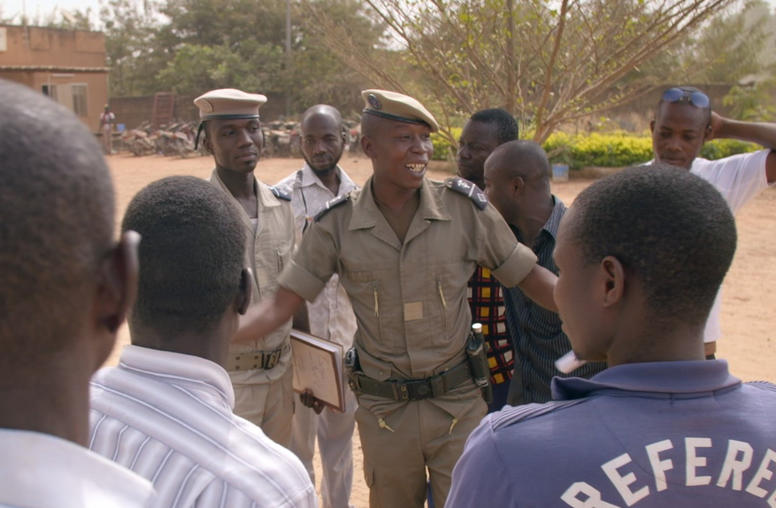
Amid Rising Sahel Violence, Burkina Faso Builds a Response
A perfect storm of violence is breaking upon Africa’s Sahel. Since late 2018, communal conflicts—many over access to food, water or productive land—have produced thousands of deadly attacks. Across the region, nearly 4,800 people died in conflicts from November to March, according to the violence-monitoring group ACLED. The greatest surge in bloodshed is in Burkina Faso, where communal militias or religious extremists killed 500 people over five months. But amid the dire headlines, governments and civic groups in Burkina Faso and other Sahel countries cite progress in stabilizing communities with a basic step that simply has seldom been undertaken: broad, local dialogues among community groups, police forces and officials. Community leaders and government officials say they are now expanding those dialogues to improve national security policies to help counter the tide of violence.
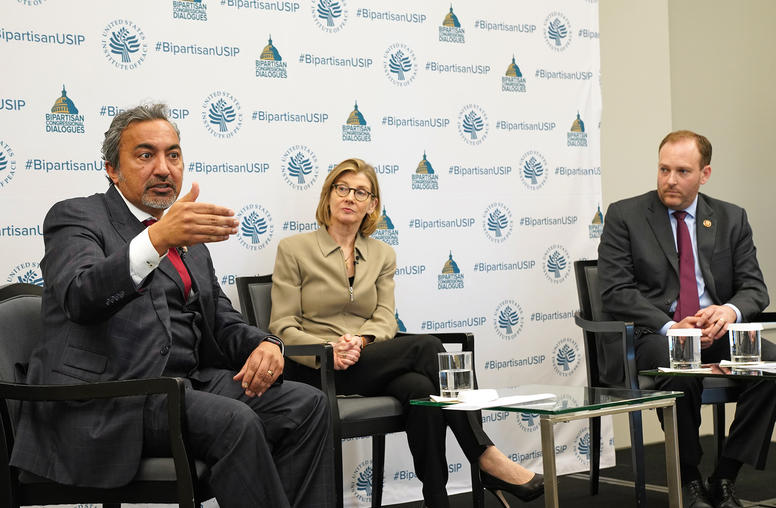
Congressional Oversight for Effective Foreign Policy
As leaders of the House Foreign Affairs Committee’s new panel on oversight and investigations, Representatives Ami Bera (D-CA) and Lee Zeldin (R-NY) agreed that examining the nuts and bolts of diplomacy and development work is a critical—and often unfulfilled—job for Congress.
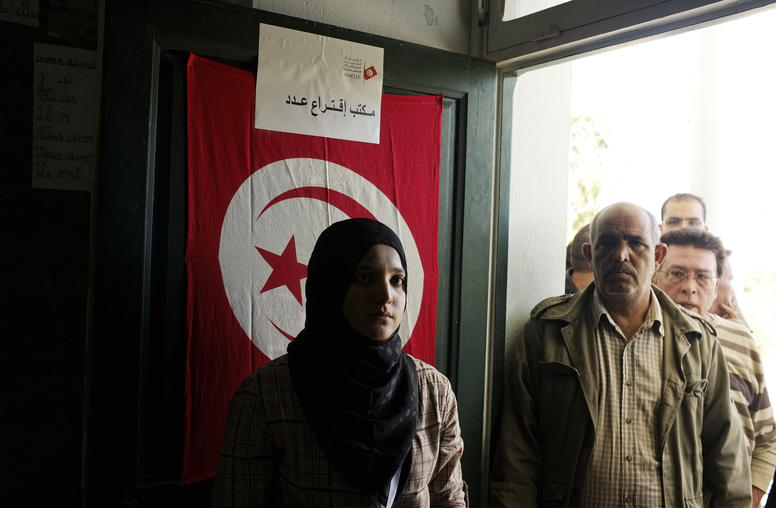
Amid North Africa’s Turmoil, Tunisia’s Steady Transition Moves Forward
From Algeria to Libya to Sudan, North Africa has been roiled by protests and fighting in recent months not seen since the 2011 Arab uprisings. Those uprisings were sparked in Tunisia, which has continued a steady, if uneven, democratic transition in the years since. Despite the challenges posed by this regional turmoil, the small Mediterranean nation must continue to focus on domestic problems, said Tunisia’s defense minister, Abdelkarim Zbidi, this week at the U.S. Institute of Peace. What happens in Tunisia in the years to come will be important for the entire region.
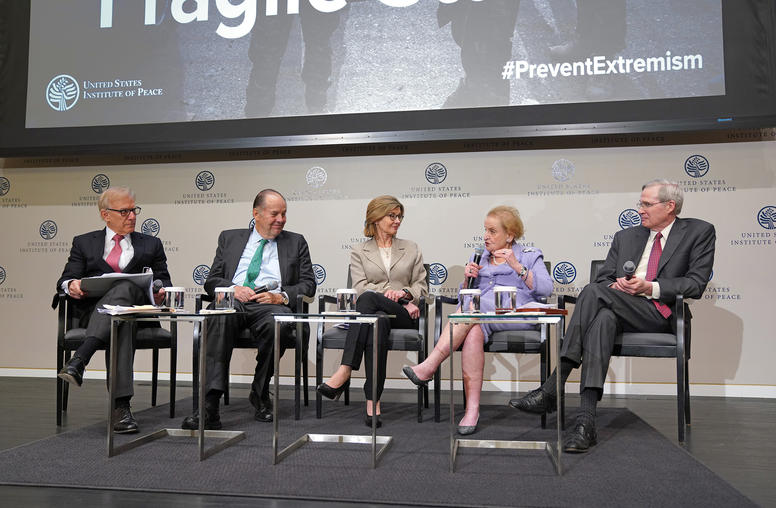
Fragile States and Violent Extremism: New Ideas for a Policy of Prevention
On April 21, suicide bombers in Sri Lanka reminded the world that the end of the Islamic State’s “caliphate” by no means marked the defeat of violent extremism. Indeed, despite trillions of dollars spent and tens of thousands of lives lost, terrorism is spreading. The urgency of checking the ideology behind terrorism, particularly where the ground for it is most fertile, has never been greater, said members of the Task Force on Extremism in Fragile States this week at the U.S. Institute of Peace.
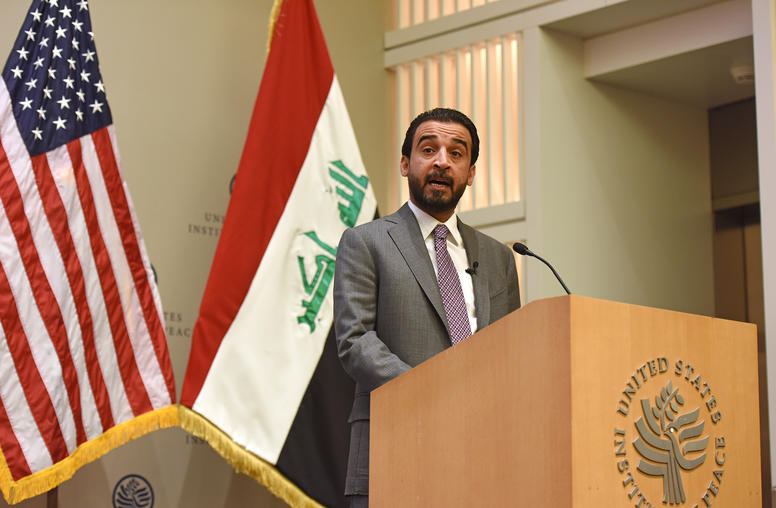
Iraq’s Leading Lawmaker Warns Aid Needed to Finish Off ISIS
Iraq is beginning to stabilize after its military victory against ISIS, but international assistance—without political meddling—remains badly needed to rebuild its economy and social fabric, the speaker of Iraq’s parliament, Mohamed al-Halbousi, said.
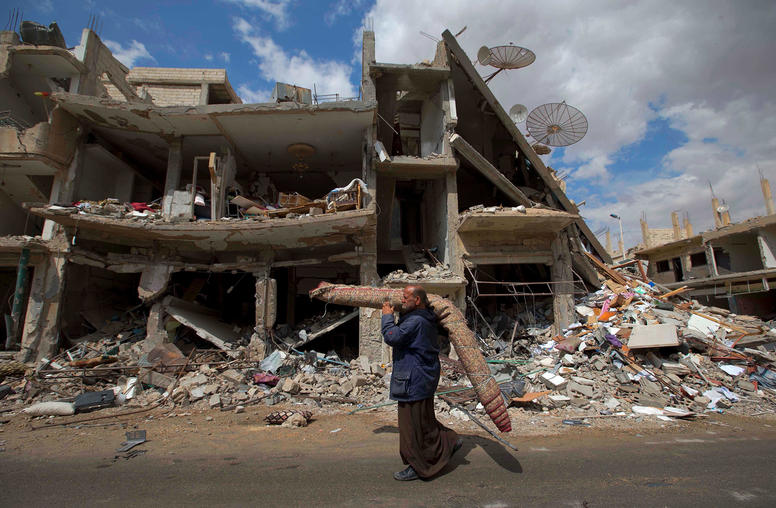
The Fatemiyoun Army: Reintegration into Afghan Society
Since 2013, as many as 50,000 Afghans have fought in Syria as part of the Fatemiyoun, a pro-Assad force organized by the Iranian Revolutionary Guards Corps. Based on field interviews with former fighters and their families, this Special Report examines the motivations of members of the Afghan Shia Hazara communities who joined the Fatemiyoun as well as the economic and political challenges of reintegrating them into Afghan society.

Nancy Lindborg on a New Prevention Paradigm
Following the release of the Task Force on Extremism in Fragile States’ final report, Nancy Lindborg explains why a new prevention paradigm is needed to address the root causes of extremism in fragile states. “We are in a moment of convergence and shared desire to figure out how to do these tough tasks differently,” says Lindborg.
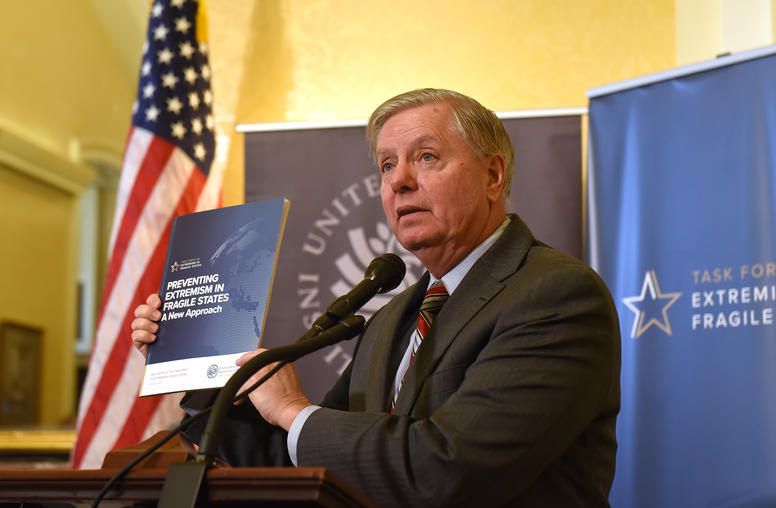
Bipartisan Congressional Panel Urges New Approach to Fighting Extremism
Members of Congress representing both parties—Senators Chris Coons (D-DE) and Lindsay Graham (R-SC), as well as Representatives Eliot Engel (D-NY) and Michael McCaul (R-TX)—yesterday lauded the release of a new report that makes the case and outlines a framework for preventing violent extremism at its roots.
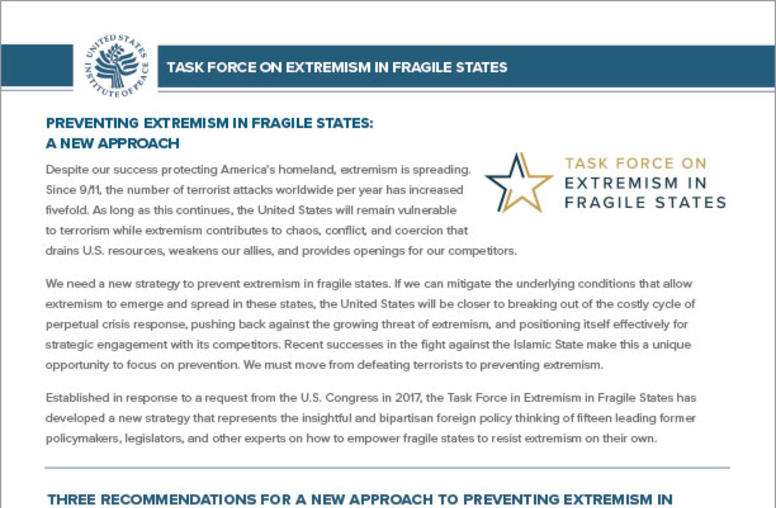
Three recommendations for a new approach to preventing extremism in fragile states
Despite our success protecting America’s homeland, extremism is spreading. Since 9/11, the number of terrorist attacks worldwide per year has increased fivefold. As long as this continues, the United States will remain vulnerable to terrorism while extremism contributes to chaos, conflict, and coercion that drains U.S. resources, weakens our allies, and provides openings for our competitors.
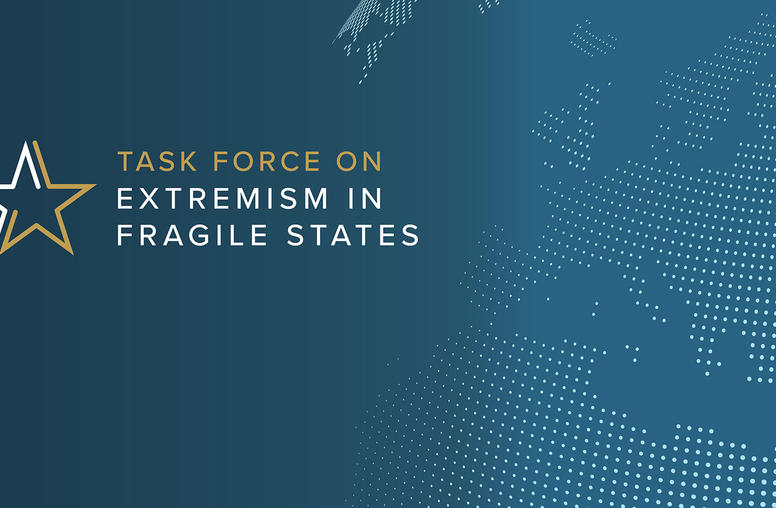
Preventing Extremism in Fragile States: A New Approach
Despite our success protecting America’s homeland, extremism is spreading. Since 9/11, the number of terrorist attacks worldwide per year has increased fivefold. As long as this continues, the United States will remain vulnerable to terrorism while extremism contributes to chaos, conflict, and coercion that drains U.S. resources, weakens our allies, and provides openings for our competitors.